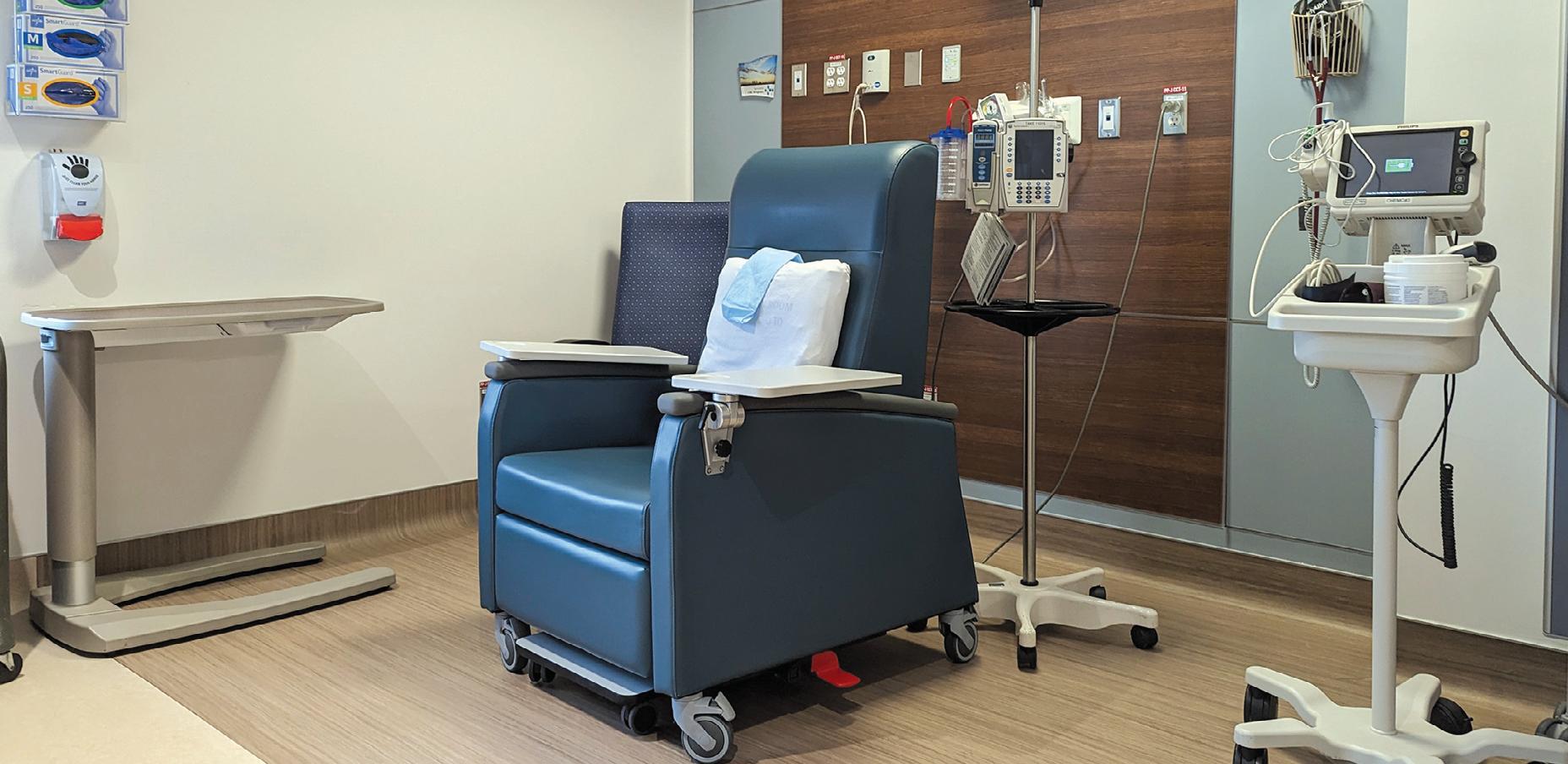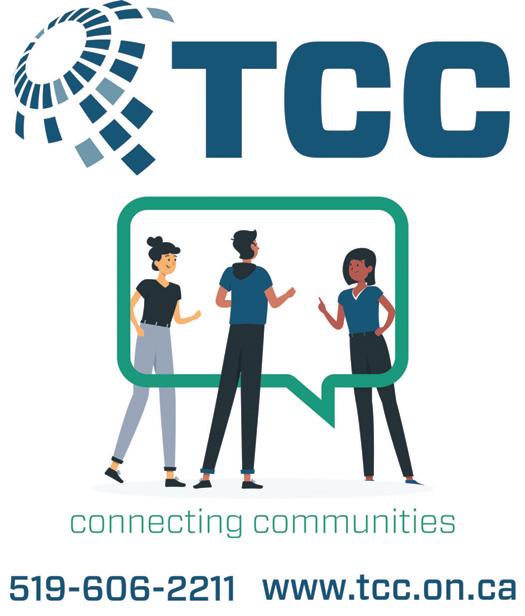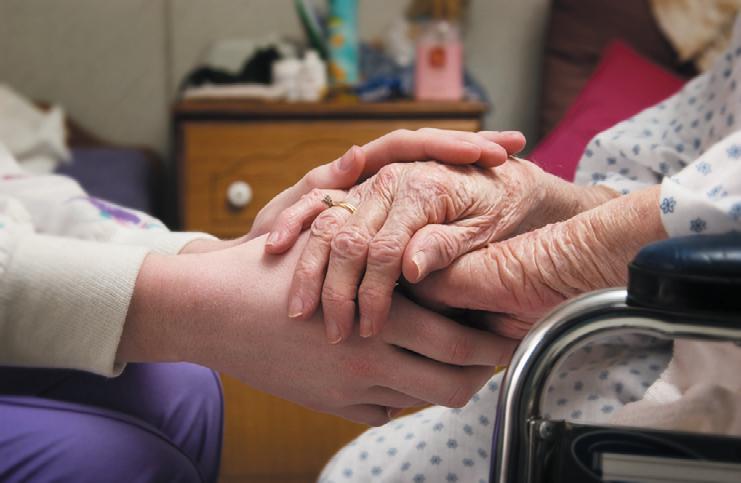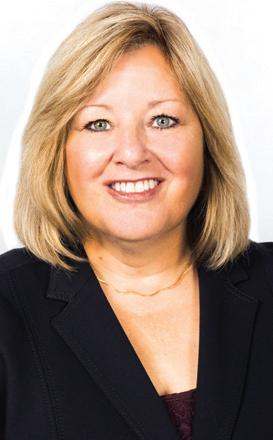
1 minute read
enablescare close to home, saving time
nearby pharmacy for the medication they need for the day. The majority of chemotherapy agents and cancer medications can be administered at the site, but there are rare instances in which treatment must be sought in London.

Advertisement

On an average day they’ll see seven or eight patients. The unit is equipped with eight chairs and a room with a stretcher, if someone needs to receive treatment while laying down or will be there for a lengthy amount of time (treatment times range from one to eight hours, depending on the patient).
Bell says the unit is set up to convey a friendly atmosphere, with the chairs facing one another to allow for conversation, with televisions and WiFi for entertainment and chairs for spouses or loved ones to come and keep patients company as they’re treated.


In addition to the nurses getting to know their patients over time, it’s not unusual for patients to get to know one another, with some of them being on similar treatment schedules.

There is a screening process to assess symptoms, progress and any changes that have occurred since their last treatment. This not only informs the nurses for the day, they say, but it also provides historical data that can be consulted on a longer timeline to see how patients are faring with their treatment over months and years.

After the assessment, the nurses take a patient’s vitals and a blood sample and, once everything is looking good and cleared to go, treatment can move forward. That’s when the nurses will communicate with the pharmacist and get the necessary medication ready for the treatment ahead.
In addition to the very capable nurses, if necessary, there is a dedicated doctor available to the unit every day, in addition to other medical professionals from throughout the hospital.
Both Bell and MacDonald say they find their work in the unit very fulfilling, though it can be challenging at times. As some patients will improve and eventually leave the unit cancer-free, others are not so lucky and will pass away when cancer gets the better of them. It is a challenging aspect of the job, but one that comes with the territory. But, to see people have their pain relieved and conditions improved can be very rewarding, the pair agrees.
The Elizabeth (Betty Zinn)











